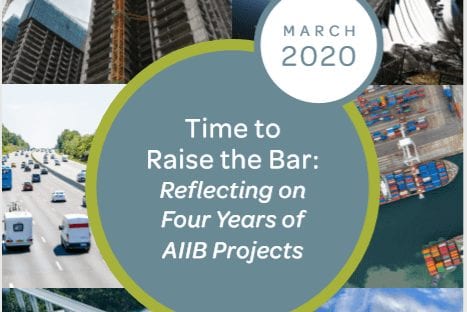Inclusive Development International has released a new briefing paper looking at the project portfolio of the Asian Infrastructure Investment Bank (AIIB).
After its establishment in 2015, the Asian Infrastructure Investment Bank (AIIB) hit the ground running. With a bold agenda to create a “lean, clean and green” multilateral development bank for the 21st century, the AIIB set about developing the structures, staffing and policies required to achieve this vision.
This included creating an Environmental and Social Framework (ESF) containing the policies that bind the bank and standards that AIIB clients are expected to uphold in their projects. The final ESF was adopted in February 2016 and received mixed reviews from civil society observers. In response to public comments, the bank made important adjustments to the draft, but many still view the framework as a stripped back version of the safeguards in place at other established institutions. Fortunately, the bank wrote into the ESF a clause that after three years there would be a review of the document and its application during the bank’s start-up phase. This review commenced in late January 2020.
The AIIB’s first project was approved in June 2016, and as of early March 2020, the bank has approved 64 projects worth over US$12 billion. Time to Raise the Bar: Reflecting on Four Years of AIIB Projects looks at the bank’s portfolio and seeks to inform readers on where and how AIIB funds are flowing, in order to provide a solid grounding for those engaging in the public consultations on the ESF review.
With the review of the AIIB’s Environmental and Social Framework now underway, the bank has an opportunity to raise the bar. Building on the experiences of its multilateral peers, as well as the experiences it has gathered as its own institutions and portfolio have developed, the bank can fill the gaps in the existing framework and address the shortcomings of its first iteration.
With its portfolio of standalone projects growing, and an increasing number of category A projects filling the pipeline, this is an opportunity that bank cannot afford to miss.


